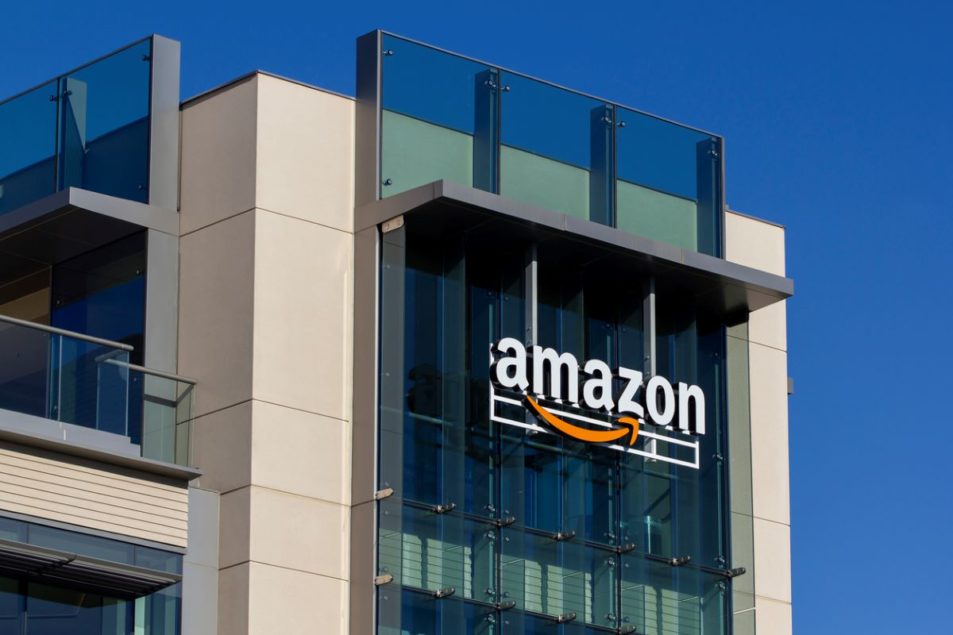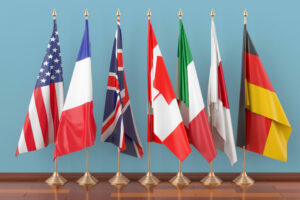
Amazon.com Inc. warned distributors in Europe that it will cease ordering from them next year in favor of buying products directly from brands, an effort to stem losses by cutting out some middlemen.
The e-commerce giant notified vendors via e-mail that the changes would begin as early as January. The message encourages those affected to sell goods on Amazon’s marketplace, which lets the company take a commission on each sale and charge additional fees for logistics and advertising without buying inventory directly.
“As part of a procurement policy implemented at a European level, Amazon has decided to focus on sourcing brands directly from brand owners,” the email states. “You still have the opportunity to sell these products to customers directly on our store through Amazon Marketplace, as a third-party seller.”
With growth slowing in its online retail business, Amazon is trying to curb losses — which are most acute in the international arm that largely encompasses Germany, the UK and other European Union markets. The company reported an operating loss of $7.75 billion for the international unit in 2022, triple that of the previous year.
“As is common for all businesses, we regularly review our approach to product sourcing as we try to control our costs and keep prices low for customers,” Amazon spokesman Harry Staight said in an email. “With this in mind, we’ve decided to focus on sourcing certain products for our European stores directly from brand owners.”
The change in Europe will affect products that Amazon buys directly from wholesalers and sells itself at a markup. Going forward, the company will rely more on third-party merchants, who shoulder the risk of holding inventory.
Bloomberg reported on February 20th that, for the first time, Amazon’s average cut of each third-party sale surpassed 50% in 2022. Marketplace Pulse, which sampled seller transactions going back to 2016, said third-party sellers have been paying Amazon more per transaction for six years in a row. The increases make it harder for online merchants to earn a profit.
The changes in Europe will likely affect about 20,000 vendors and could limit product availability on Amazon, said Martin Heubel, a former Amazon executive who now advises brands selling goods on the site.
“Considering that many brands are not selling directly to Amazon and rely on distributors to reach customers, this latest move is likely to have a negative impact on availability and therefore overall customer experience,” he said.
- SEO Powered Content & PR Distribution. Get Amplified Today.
- Platoblockchain. Web3 Metaverse Intelligence. Knowledge Amplified. Access Here.
- Source: https://www.supplychainbrain.com/articles/36668-amazon-to-push-out-europe-middlemen-in-latest-cost-cutting-move
- 000
- 2016
- 2022
- a
- About
- Additional
- Advertising
- affect
- All
- Amazon
- and
- approach
- ARM
- availability
- average
- back
- Billion
- brand
- brands
- business
- businesses
- Buying
- Buys
- certain
- change
- Changes
- charge
- COM
- commission
- Common
- company
- control
- Costs
- could
- customer
- customer experience
- Customers
- Cut
- cutting
- decided
- directly
- distributors
- e-commerce
- each
- Early
- earn
- effort
- encompasses
- encourages
- Europe
- European
- european union
- executive
- experience
- favor
- February
- Fees
- First
- first time
- Focus
- Former
- Forward
- from
- Germany
- giant
- going
- goods
- Growth
- holding
- HTTPS
- Impact
- implemented
- in
- Inc.
- Increases
- International
- inventory
- IT
- itself
- January
- Keep
- largely
- latest
- Lets
- Level
- likely
- LIMIT
- logistics
- loss
- losses
- Low
- make
- many
- marketplace
- Markets
- Martin
- Merchants
- message
- middlemen
- mind
- more
- most
- move
- negative
- next
- online
- online merchants
- online retail
- operating
- Opportunity
- Other
- overall
- owners
- part
- paying
- plato
- Plato Data Intelligence
- PlatoData
- policy
- previous
- Prices
- Product
- Products
- Profit
- pulse
- Push
- reach
- regularly
- Reported
- retail
- review
- Risk
- ROW
- Said
- sale
- sell
- Sellers
- Selling
- Sells
- site
- SIX
- Slowing
- some
- Sourcing
- States
- Stem
- Still
- store
- stores
- surpassed
- Take
- The
- the UK
- therefore
- third-party
- Through
- time
- to
- transaction
- Transactions
- Triple
- Uk
- union
- unit
- vendors
- via
- which
- WHO
- will
- without
- would
- year
- years
- zephyrnet













